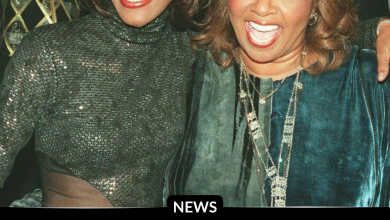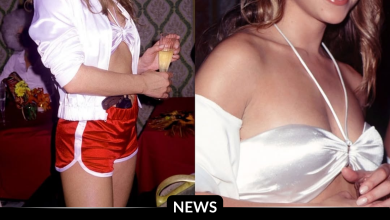Queen Latifah’s Oscar-Nominated Role Wasn’t Inspired by a Star—It Was Modeled After the Woman Who Raised Her
OPINION: This article may contain commentary which reflects the author's opinion.
When Queen Latifah stepped into the role of Matron “Mama” Morton in the 2002 film Chicago, her commanding performance earned her an Academy Award nomination and captivated audiences worldwide. Yet, contrary to director Rob Marshall’s suggestion that she draw inspiration from the historical muse Sophie Tucker, Latifah’s portrayal was deeply personal—rooted in the confident spirit of the woman who raised her: her grandmother.
Chicago, a dazzling musical set in the jazz-fueled 1920s, features Mama Morton as the savvy and manipulative warden of the women’s prison. Traditionally, this character was modeled after Sophie Tucker, the flamboyant vaudeville star famously known as the “Last of the Red-Hot Mamas,” whose brassy charm and bold performances inspired Mama Morton’s swagger. Marshall encouraged Latifah to study Tucker’s style, but as Latifah revealed in a 2003 interview with The Guardian, she was unfamiliar with Tucker’s legacy. “Sophie Tucker? I didn’t even know who she was,” Latifah laughed. “But my grandmother? I got this!”
Latifah’s grandmother, a worldly and graceful woman who traveled extensively, embodied a quiet strength and an effortless command of any room she entered—qualities perfectly suited to Mama Morton’s blend of maternal warmth and cunning control. “She had this way of owning a room,” Latifah explained, crediting her grandmother’s poise as the heart of her performance. This personal connection infused Mama Morton’s show-stopping number, “When You’re Good to Mama,” with authenticity and power.
Speaking to Entertainment Weekly, Latifah expressed confidence in her choice: “I didn’t need to know Sophie Tucker—my grandmother gave me everything I needed.” That intimate source of inspiration resonated deeply with critics and audiences alike, helping Latifah secure a Best Supporting Actress Oscar nomination (Variety, 2002).
Although she later learned about Tucker’s flamboyant legacy, it was the spirit of her grandmother that truly brought Mama Morton to life—melding sly charm, authoritative presence, and powerhouse vocals in a performance that remains iconic. In a world defined by fame and deception, Queen Latifah’s portrayal stands as a testament to the power of personal experience, proving that sometimes the best muse is found not in history books, but in the people who shaped us.



